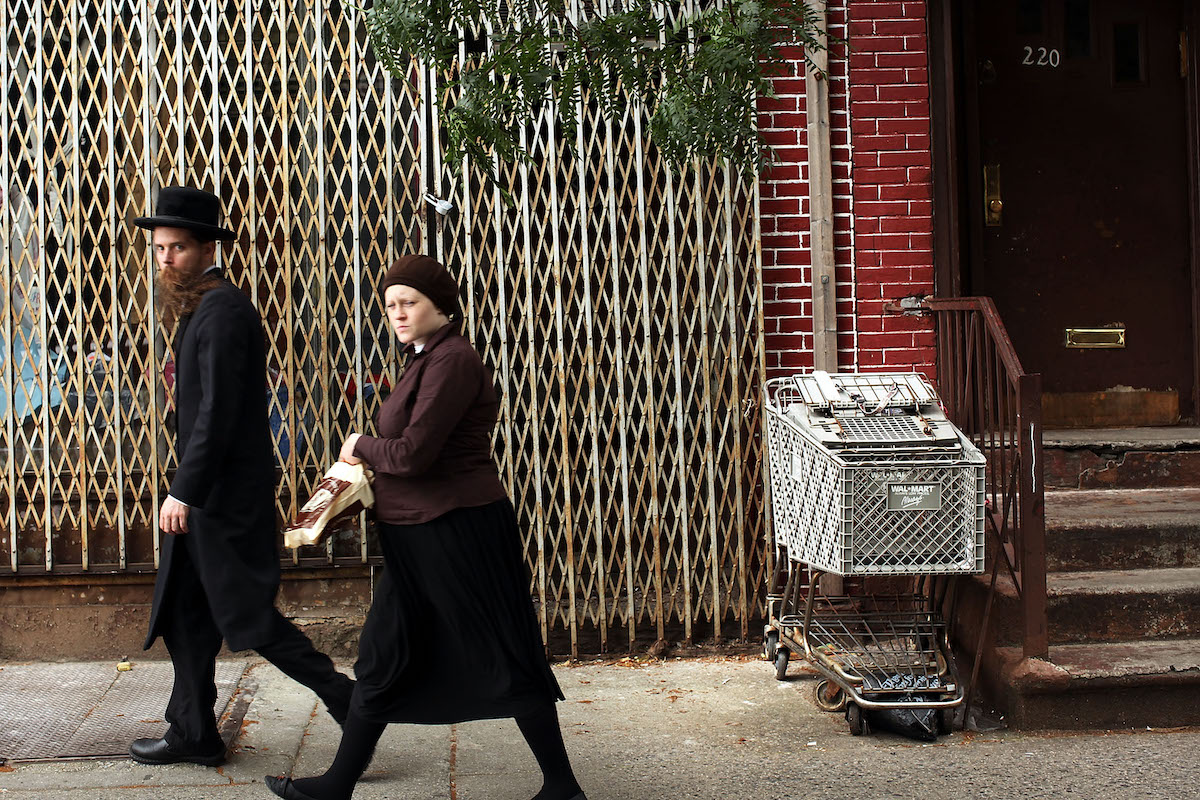Over the course of one week in August, there were three separate hate crimes against visibly Orthodox Jewish men in Brooklyn. On August 31, a Jewish man was hit with a belt outside of a synagogue. On August 29, a brick was thrown at a Jewish man while he was in his car. On August 27, a Jewish man was beaten with a rock while on a run.
Most recently, on Tuesday night, a Jewish man was attacked and robbed by a group of men.
Anti-Semitic hate crimes are on the rise, particularly against Hasidic communities. Despite this fact, it feels like the larger Jewish community doesn’t care. It seems the non-Orthodox sects of the Jewish community are distanced from the Hasidic and Orthodox community — who see Orthodoxy as out of date or unwelcome to more progressive issues — and the relationship between all sects of Judaism feels damaged beyond repair.
I understand firsthand the feeling of being unwelcomed in the Orthodox community. Until age 13, I attended an Orthodox Hebrew school. But as a queer Jew, and the child of a convert, I learned at a young age that my Judaism might not be perceived as valid from my fellow community members, rabbis, and Hebrew school teachers.
My mother wasn’t perceived as Jewish because she converted under a Reform rabbi. This left me questioning my own Judaism. If my mother was not a Jew in my community’s eyes, what was I? She was never very involved in my Jewish community — I still wonder if it was because she did not feel welcome.
At Hebrew school, I received plenty of backwards messages about converts, women, and queer people. I was taught that non-Orthodox converts were not Jews, queerness was a sin, and that women should be seen and not heard. At my bat mitzvah, I was only allowed to read the haftorah — a selected passage from one of the books of the prophets to be read after the weekly Torah portion. The belief was that women were never supposed to be called up chant Torah. When my male peers chanted Torah at all of their bar mitzvahs, I remember feeling a sense of confusion: Why could they do it, and I couldn’t?
It felt impossible to blend the Jewish values of the community I was raised in with my burgeoning feminist identity. I felt undervalued. I felt less than my male peers because my voice was not as important. I spent years questioning whether I could be Jewish and feminist at all. Ultimately, I stuck with the identity I felt like I couldn’t choose. I couldn’t change the person I loved, but I could remove myself from the community who saw queerness as a sin. I became a bat mitzvah and then made a conscious decision to end my Jewish education and practice.
It wasn’t until I got to college that I started practicing Judaism again. Through my Hillel, I met a vibrant community of Reform and Conservative Jews who were proudly queer and Jewish. It was talking with them that showed me I could be proud of both my identities. I now end my week by going to Conservative services at my Hillel and doing Shabbat dinners with friends.
Even though I am no longer part of the community I grew up in, I still believe we need to unequivocally stand with the Hasidic and Orthodox community. I understand the pain that the Orthodox community has inflicted upon other sects of Judaism by declaring Reform and Conservative spaces and rabbis illegitimate, but I still believe we must stand up for our community as a whole. Speaking out against hate crimes should not be dependent on how you feel about one’s level of practice.
In a Jewish learning fellowship on social justice I took during my first semester of college, I learned a quote from Rabbi Hillel: “That which is hateful to you, do not unto another: This is the whole Torah.” This quote was the first step towards forgiveness for me. Resenting the Orthodox community for the way my mother was treated, and the way I was taught, was blocking my own growth as Jew and was cutting me off from meaningful relationships within my campus Hillel. Forgiving the community I grew up in has allowed me to open my heart to create space for new connections.
Today, two of my best friends grew up Orthodox, and they are the most accepting and loving people I have ever met. I would abandon my values if I did not stand with them and the community closest to them, especially during this time when visibly Jewish people are vulnerable to attacks.
So yes, I understand feeling like the Orthodox community does not stand in solidarity with you — but we must follow the words of Rabbi Hillel. We as a collective Jewish community must stand up our Orthodox and Hasidic siblings even if it feels like they do not always stand with us.
Image via Spencer Platt/Staff/Getty Images News



